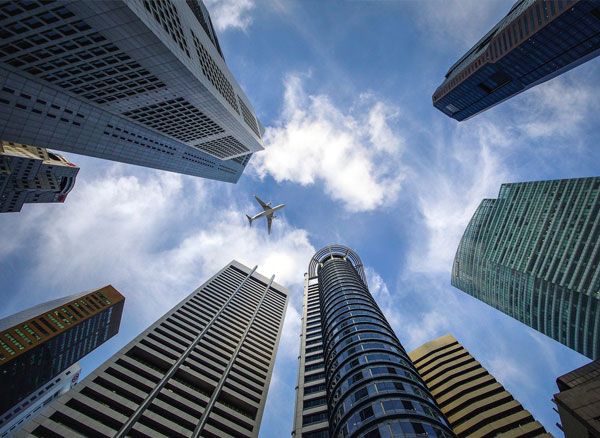Germanyhaslongbeenregardedasalandofopportunity,acountrywitharobusteconomy,highlivingstandards,andareputationforwelcomingskilledmigrants.Yet,formanyimmigrants,therealityofsettlinginGermanycanfeelfarmorecomplicatedthanthepolishedimagesuggests.Whilethecountry’simmigrationpolicieshaveevolvedtoattractglobaltalent,storiesofbureaucraticnightmares,culturaldisorientation,andsystemicbarrierscontinuetosurface,promptingthequestion:IsimmigratingtoGermanyreallyaschallengingassomeclaim?

OneofthemostcommongrievancesrevolvesaroundGermany’sinfamousbureaucracy.Evensimpletasks,suchasregisteringanaddress(Anmeldung)orapplyingforaresidencepermit,ofteninvolvelabyrinthinepaperwork,longwaitingtimes,andinconsistentrulesacrossdifferentcities.Non-EUimmigrants,inparticular,reportfrustrationwiththe“Catch-22”scenarios:securingajoboftenrequiresavalidvisa,butobtainingavisamaydependonalreadyhavingajoboffer.Theprocesscantakemonths,leavingapplicantsinlegallimbo.WhiletheintroductionoftheEUBlueCardstreamlinedentryforhighlyskilledprofessionals,thoseoutsidetech,engineering,oracademia—suchasartists,freelancers,orentrepreneurs—faceasteeperclimb,withrigidcriteriathatdon’talwaysreflectmoderncareerpaths.
Languagebarriersfurthercompoundthechallenges.ThoughEnglishiswidelyspokenincosmopolitanhubslikeBerlin,fluencyinGermanremainscrucialforintegration,accessingservices,andbuildingsocialconnections.Manyimmigrantsunderestimatethetimeandeffortrequiredtomasterthelanguage,especiallygivenGermany’sregionaldialectsandformalcommunicationnorms.PublicinstitutionsrarelyprovideEnglish-languagesupport,leavingthosewithlimitedGermanskillsdependentontranslatorsoradvocacygroups.Evenhighlyeducatedmigrantsadmitthattheircareersstagnateduntiltheyachievedconversationalfluency,ahurdlethatcantakeyearstoovercome.
Culturalintegrationpresentsanotherlayerofcomplexity.Germany’sdirectcommunicationstyleandemphasisonrulescanfeelalienatingtonewcomersaccustomedtomoreflexibleorindirectsocialnorms.Storiesoflandlordsrejectingapplicantsforminorpaperworkerrors,oremployersdismissingforeignqualifications,arenotuncommon.Thehousingcrisisinmajorcitiesexacerbatesthesetensions,withimmigrantscompetingforscarceapartmentsamidrisingrentsanddiscrimination.A2022studybytheFederalAnti-DiscriminationAgencyfoundthat40%ofmigrantsreportedexperiencingbiasinhousingorjobmarkets,withnon-whiteapplicantsfacingdisproportionatelyhigherrejectionrates.
Yet,it’scrucialtocontextualizethesechallenges.Germany’ssocialsafetynet—includinguniversalhealthcare,subsidizededucation,andstrongworkers’rights—offersstabilityrarelyfoundelsewhere.Manyimmigrantspraisethecountry’swork-lifebalance,efficientpublictransport,andopportunitiesforprofessionalgrowthonceinitialbarriersareovercome.CitieslikeHamburgandFrankfurthavelaunched“WelcomeCenters”toassistnewcomers,andrecentreforms,suchasthe2023SkilledImmigrationAct,aimtofast-trackvisaapprovalsandrecognizeforeigncredentialsmorefairly.Forrefugeesandasylumseekers,Germany’spoliciesremainamongEurope’smostcompassionate,despitepoliticaldebatesoverintegration.
TheimmigrantexperienceinGermanyisultimatelyastoryofcontrasts.Whilesystemicinefficienciesandculturalgapscanmakethejourneyarduous,therewards—economicstability,safety,andaccesstoahigh-qualityeducationsystem—aretransformativeforthosewhopersist.AsoneSyrianengineerturnedBerlinstartupfounderputit:“Germanygivesyouacanvas,butyouhavetopaintthepictureyourself.”Successdependsnotjustonpaperwork,butonresilience,adaptability,andawillingnesstoengagedeeplywithasocietythatvaluesprecisionandorder.Forsome,thistrade-offisworthit;forothers,thehurdlesoutweighthebenefits.TheanswertowhetherGermanyis“too坑”(kēng,“apitfall”)liesinindividualexpectations,preparation,andtheoften-unpredictableinterplaybetweenpolicyandlivedreality.